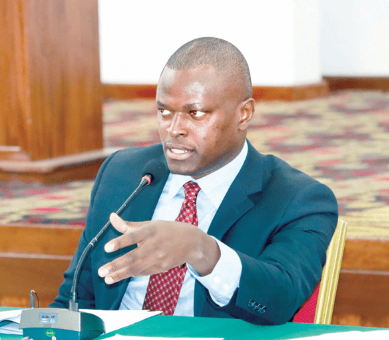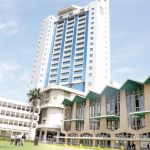Serious divisions have emerged among Members of Parliament regarding the distribution of projects by the Budget and Appropriation Committee. MPs are comparing the current process to the “budgeted corruption” that plagued the 11th Parliament and led to its disbandment.
The controversy centers around the 2023/2024 budget, where it is alleged that the committee, chaired by Kiharu MP Ndindi Nyoro, has allocated projects disproportionately. MPs have accused their colleagues in the Budget Committee of collaborating with the National Treasury to alter budget proposals, thereby disenfranchising certain members.
Some MPs are now calling for the disbandment of the committee, criticizing what they see as institutionalized corruption in the budgetary process. The allocation of national government projects has come under scrutiny, with accusations of bias towards individuals based on their political affiliations or proximity to influential figures.
Several ministries and state departments are facing allegations of favoritism, including the Ministries of Roads and Transport, Agriculture and Livestock Development, and Energy and Petroleum.
Sirisia MP John Waluke highlighted the disparity, stating, “I have not been allocated a single roads project while some of my colleagues, even those in the opposition, have been given more than ten projects.” Similarly, Mount Elgon MP Fred Kapondi is reported to have missed out on roads projects.
Similar disparities are noted in other ministries, including Education, Health, and SMEs and Cooperatives. Emuhaya MP Omboko Milemba, a leading voice of dissent, urged his colleagues to be cautious in the budget-making process to avoid what he called “budgeted corruption.
” Milemba commented, “For a few days, I have been wondering what happened to the Ministry of Energy, only to realize that my constituency got only one electricity project. Contrastingly, other regions appear to have secured between 14 and 17 projects.”
Calls for Fairness in Project Allocation Amid Budgetary Disputes
Emphasizing the need for fair project distribution, Emuhaya MP Omboko Milemba stated, “We cannot afford a scenario where certain members are disproportionately favored, leaving others with minimal opportunities to effectively represent their constituents.” He suggested that the Ministry of Energy should distribute an equal number of transformers to every MP for their constituencies.
“Who will die because of this? Must you have too much while others have nothing?
The same applies to roads. So, as we deal with the upcoming budget, these are some of the things we should consider,” Milemba added. He expressed support for the President’s remarks on budgeted corruption and called for careful management and accountability in the budget-making process. “In terms of resources distribution, we need to know how much goes to each constituency,” he emphasized.
Marakwet East MP Kangogo Bowen, who chairs the Departmental Committee on Blue Economy and Irrigation, stressed the importance of thorough examination of the proposed budget. He urged committees to engage with ministries, exercise oversight, and work within budgetary ceilings.
Bowen also highlighted concerns about the amendment process: “We should be allowed to move amendments on the Floor of the House, to agree or reject them. Sometimes, when you raise an amendment, you are told to first agree with the Chairperson of the Budget and Appropriations, who might refuse and it is thrown away.
I want all of us not to just sit here and say Aye or Nay. Yet, we do not know why we are saying so,” he said.
Wundanyi MP Danson Mwashako criticized some members who, without understanding the committee’s workings, express dissatisfaction with the Budget and Appropriations Committee. “When chairpersons of committees appear before us, we try as much as possible not to amend or make changes to their proposals,” Mwashako noted.
Leader of Majority Kimani Ichung’wah reflected on past issues with the Budget and Appropriations Committee, recalling its disbandment following similar complaints in the 11th Parliament. “The Liaison Committee did their work for the rest of the term of that parliament,” Ichung’wah said.
He urged the current committee to engage in introspection to prevent budgeted corruption from reoccurring.
Despite the ongoing scrutiny, Mwashako insisted that as Parliament addresses the alleged budgeted corruption, it must also strive to avoid further imbalances in project allocation.



